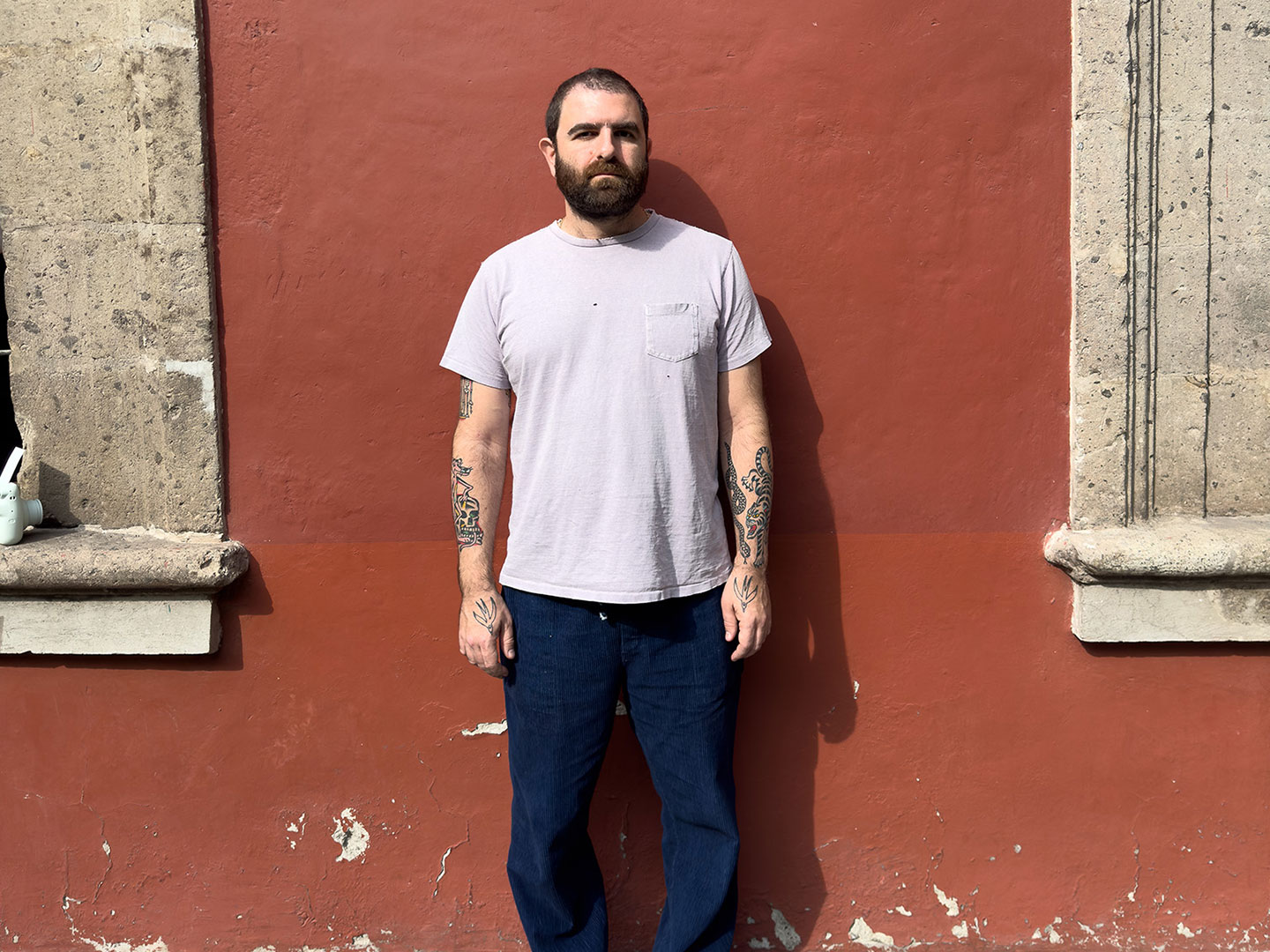
Homer
If you are musically in the know, you know the name Homer Steinweiss, and you know he is a great drummer. Even if you are not in the know, chances are you know and love music you don’t realize he is playing on. For the majority of his career, he’s been one of the most in demand drummers playing on recordings with everyone from Amy Winehouse to Solange, from Adele to Silk Sonic, and that is literally just the tip of the iceberg. But now, with his first solo release on Big Crown Records, Homer is stepping to the forefront as both musician and producer. It’s not only a heady bricolage of Homer’s experience and knowledge from playing music professionally since he was 16—it’s also a personal snapshot of who he is now, as well as how struggle often brings about a needed change.
He’s played for nearly every “retro soul” group that mattered since 2001 and his distinctive stickwork helped blend the raw-but-receptive soul sound back into the mainstream. The irrefutable evidence is in the spectrum of his playing credits—starting with the underground cult classic, Thunder Chicken, by The Mighty Imperials and spanning a twenty some odd year hot streak backing the likes of The Jonas Brothers and Bruno Mars. While drumming on all these projects has been fulfilling there was always more to Homer than drums. “As a sideman and drummer starting my career, I was really comfortable there, in that role,” Homer explains. “But the whole time, I always had ideas—I always really liked the projects that included me as a writer.” When you’re the session drummer or part of a touring band, there are songs to play, sounds and textures to create and re-create, and marks to hit. There is room to explore in that role, but, by definition, it’s limited. As Homer sharpened his musicianship on the road and in the studio, there was a growing appetite to better express his ideas and explore beyond playing something that sounded good. Ultimately, Homer wanted to decide how something would sound and his constant and natural gravitation toward producing has brought us here.
Homer and Big Crown Records label co-founder Leon Michels have known each other since their high school days in Manhattan so when Homer formed Holy Hive, he brought the first demos to Big Crown. “I always wanted to be in a band, and after my years at Daptone started to wind down, starting the Holy Hive project with Paul (Spring) was exactly where I wanted to be,” Homer remembers. “It was very collaborative—we co-wrote songs and toured together. But it did give me confidence and showed me that, through my own writing and producing, I could not just be in a band, but that I could be a band leader.” But then, like far too many good things, Holy Hive came to an end.
Despite knowing the direction he wanted to go, Homer still had to reckon with considerable personal turbulence around this time: his band breaking up was coupled with a rupture in his personal life that ended a relationship of 20+ years. This all put Homer in an uncertain place mentally, and the fallout was significant enough for him to seek professional help. “I was going through these super manic highs and then very depressive lows,” Homer describes. “And being in all that, it’s just so tough to imagine that the other side is there, that it’ll be ok.” But, with time, professional help, and support from friends and family, Homer did make it through and has been forever changed. Armed with this experience and the self-knowledge that came with it, this new album is a testament to that shift.
In the aftermath, music once again became a savior of sorts for Homer. The first song he began working on, “Now That It’s Over” knits these subjects of loss, pain, and self-retrieval. It’s a song of changing perspective and contemplation with airy and haunting vocals from collaborators Hether and Flikka. “Paul (Castelluzzo—aka, Hether), as a friend, saw me through these highs and lows,” Homer points out. “I only had the one line, ‘Now that it’s over, I’m alright,’ but he felt that lyric so much that he wrote all these sections and lyrics and basically completed the song. It was like he was writing to me.” The album then began to pour out of him. At first, slowly—then all at once. He wasn’t even sure what he was working on at first. The approach was almost too simple: working, connecting, and playing with collaborators like trumpeter Dave Guy (another high school friend) or vocalists like Kirby, Girl Named Golden, and Michael Rault (all of whom are on the record)—and seeing what comes of it. “A lot of this project was just people coming into the studio, putting something down, sending it around, and moving on,” Homer says. “I didn’t want to be too precious about it.” The goal was to just make music—strike while the creative iron was hot.
Undoubtedly, making this album was a refuge for Homer and it put him back on the track laid before him years ago. Homer has taken what he had been doing on the drums for everyone else for years and applied it to his own sound and vision.